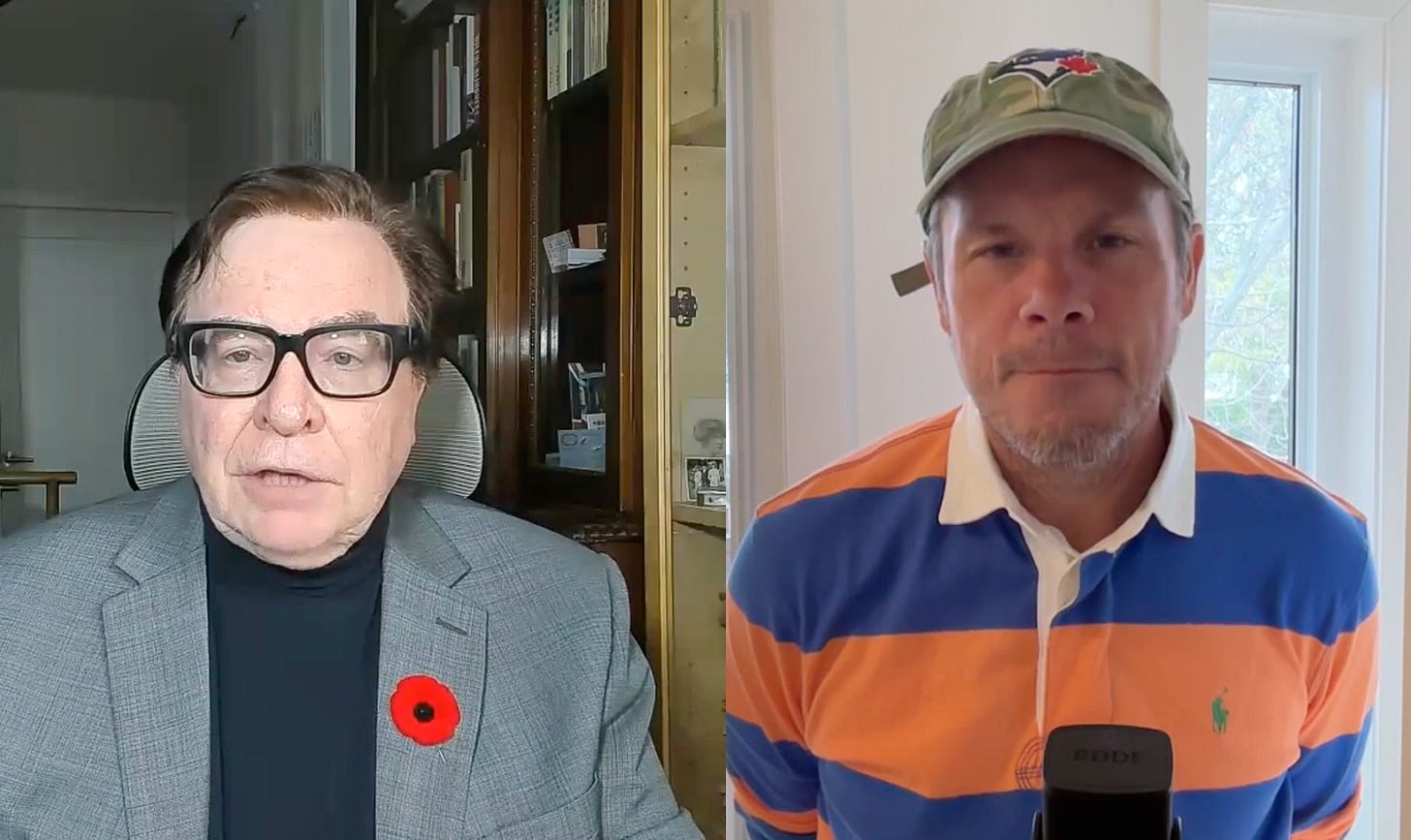World-Renowned Canadian Sinologist Recalls Illegal Flight from China After Secret Police ‘Incarceration and Interrogation’
Charles Burton discusses his new book The Beaver and the Dragon in wide-ranging interview, offering firsthand insights into China’s influence operation targeting Pierre Trudeau.
OTTAWA — When veteran Canadian diplomat Charles Burton sat down for an exclusive Bureau Podcast interview, he spoke with the calm precision of a man who has spent a lifetime decoding China’s political language. But beneath the scholarly composure, Burton delivered revelations unlike anything he has ever disclosed publicly — including details of his 2018 detention and interrogation by China’s Ministry of State Security (MSS), his illegal escape from Shanghai, and his discovery that one of his interrogators now operates in Taiwan under the guise of Buddhist organizations tied to Beijing’s United Front Work Department.
The interview, part of The Bureau’s ongoing investigation into foreign interference and elite capture in Canada, also saw Burton confirm explosive historical evidence that Pierre Trudeau’s China policy was shaped by a UBC academic — Paul Lin — whom RCMP intelligence once described as a senior Chinese agent, according to the new book by historian Dennis Molinaro. In response to questions on Molinaro’s findings, which include that Trudeau and Lin publicly denied knowing each other, Burton confirmed there was a deep relationship. Burton says he personally knew Lin and said, “He certainly influenced Trudeau.”
Together, these revelations form a narrative of international consequence — showing how Beijing’s covert networks, past and present, have penetrated Canada’s political and cultural elite, extending their reach from Shanghai to Taiwan to Prince Edward Island.
Burton began his story with a quiet understatement: “It’s not as if it was unexpected.” In 2018, after years of research and criticism of the Chinese regime, Burton returned to Shanghai. The MSS — China’s powerful civilian spy agency — was waiting. He was detained, interrogated, and psychologically manipulated. “I had prepared myself for the onslaught of psychological torture,” Burton said. “Still, it was a very challenging experience, and I suffered PTSD for some time afterward.”
Two interrogators questioned him — Cui Ren and Chen Boren. “I was later able to dox them,” Burton told The Bureau. “Chen Boren is now operating in Taiwan with the Buddhists.” The revelation that an MSS officer now works within Buddhist organizations in Taiwan — at a time when Canadian researchers are investigating alleged United Front-linked Buddhist groups on Prince Edward Island — may offer government investigators, should they choose to pursue the lead, a concrete bridge connecting Beijing’s covert networks to religious influence fronts spanning Asia and Canada.
Burton said he eventually fled China illegally, with the help of unnamed individuals “who would have been concerned if the interrogation had gone on too long.” He was smuggled out without passport processing — “onto a plane to Seoul,” he recalled. “I didn’t want to leave, but I was guided out of there,” he said. “I stayed overnight in the international zone of Seoul airport and was given a ticket to fly to Canada the next day. I lost my luggage and my computer — but I had scrubbed anything that could endanger others.”
The experience, he said, left him disillusioned not only with China but with Ottawa’s response. He informed CSIS of the ordeal — only to learn later that “the information was leaked to the Globe and Mail.” “That really upset me,” Burton said. “Possibly it came from the intelligence assessment secretariat of the Privy Council Office. But it made me realize Canada simply lacks the expertise and will to understand China’s security system.”
Burton’s disclosure that one of his interrogators is now active in Taiwan’s Buddhist sector added a jarring new dimension to The Bureau’s ongoing investigations into Buddhist-linked United Front activity in Canada. “I located him on Facebook,” Burton said. “After I left China, they sent me many messages on WeChat — then tried to reach me on Twitter, Facebook, LinkedIn. They liked LinkedIn a lot. I cross-referenced their photos and identified them.”
“I passed this information on to CSIS,” he added, “and like everything, it disappeared into a still pond like a stone.” He later received what he described as “passive-aggressive” messages from his former captors — and even an offer: “10 million yuan to become an expert for them.” “I told them explicitly during the interrogation,” Burton recalled. “‘I will never take any benefit or money from you.’ And they laughed and said, ‘So you’ll do it for us for free?’”
In the second half of the interview, Burton turned from his personal ordeal to the deep history of Chinese influence in Canada. The subject: Paul Lin, the UBC academic at the centre of historian Dennis Molinaro’s new book Under Assault.
Molinaro draws on roughly a thousand pages of newly declassified RCMP Security Service records to argue that Trudeau’s pro-China pivot in the late 1960s unfolded amid a sophisticated influence effort. The files, as described by Molinaro, indicate the RCMP believed Paul Lin was acting on behalf of the People’s Republic of China to cultivate Canadian decision-makers during the run-up to Canada’s 1970 recognition of Beijing.
Burton confirmed key details — from personal experience. “Paul Lin is someone that I knew very well,” Burton said. “He had access to the highest levels of China’s hierarchy — both the people associated with Chiang Kai-shek and those with Mao Zedong. He had contact with Premier Zhou Enlai, who Trudeau regarded as a wonderful figure.” Burton said Lin met Trudeau “multiple times, including dinners at 24 Sussex,” contradicting Trudeau’s later denials of knowing Lin. “The idea that they weren’t talking is nonsense,” Burton said. “He certainly influenced Trudeau.”
Keep reading with a 7-day free trial
Subscribe to The Bureau to keep reading this post and get 7 days of free access to the full post archives.



